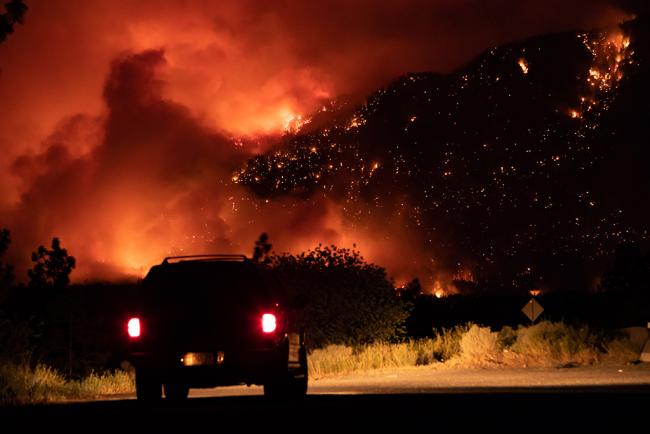Articles Menu

The world needs to step up preparations for extreme heat, which may be hitting faster and harder than previously forecast, a group of leading climate scientists have warned in the wake of freakishly high temperatures in Canada and the US.
Last week’s heat dome above British Columbia, Washington state and Portland, Oregon smashed daily temperature records by more than 5C (9F) in some places – a spike that would have been considered impossible two weeks ago, the experts said, prompting concerns the climate may have crossed a dangerous threshold.
A first analysis of the heatwave, released on Wednesday, found that human-caused climate change made the extreme weather at least 150 times more likely.
Temperatures are going up around the world as a result of greenhouse emissions and scientists have long predicted that heat records will be broken with increasing frequency.
But the authors of the new study said the latest warming surge exceeded even the worst-case scenarios of climate models. This is forcing them to revise their understanding of heatwaves and consider the possibility that other parts of the world, including the UK, could suffer similar temperature jolts.
“This is by far the largest jump in the record I have ever seen,” said Dr Friederike Otto, the associate director of the environmental change institute at the University of Oxford, who is one of the founders of the World Weather Attribution group that produced the latest study. “We should definitely not expect heatwaves to behave as they have in the past … in terms of what we need to prepare for.”
A key focus now is whether the affected areas were simply unlucky or whether the climate system has crossed a threshold and entered a new stage where a small amount of overall global heating can cause a faster rise in extreme temperatures.
There is, as yet, no scientific consensus on this, but researchers will now study as a matter of urgency whether additional forms of climate disruption, such as drought or a slowing jetstream, could be amplifying heatwaves.
Another of the authors of the new paper, Geert Jan van Oldenborgh of the Royal Netherlands Meteorological Institute, said that up until last year standard climate models had assumed that there was an upper boundary to heatwaves that moved roughly twice as fast as broader global heating trends.
“We thought we knew what was going on … Then this heatwave came which was way above the upper bound. With the knowledge of last year this was impossible. This was surprising and shaking,” he said. “We are now much less certain about heatwaves than we were two weeks ago. We are very worried about the possibility of this happening everywhere but we just don’t know yet.”
Recent headlines have focused on the US and Canada, which hit a record of 49.6C at a latitude similar to the UK. More than 500 deaths have been linked to the heat, which also sparked forest fires, glacial meltwater floods, power cuts and buckled roads.
The scientists stressed that similar heating trends could be found in many other parts of the world, though they often go underreported, particularly in sub-Saharan Africa, which does not have as many monitoring stations and which receives much less media coverage. Parts of Siberia and Pakistan have recently experienced unusually intense heatwaves. Hottest-ever June days were also recorded last month in Helsinki, Moscow and Estonia.
The World Weather Attribution group has previously traced a strong link between the climate crisis and other extreme events including the 2020 heatwave in Siberia, the 2019-20 Australian wildfires, European heatwaves in 2018 and 2019, and Tropical Storm Imelda, which hit Texas in 2019.
More than storms and floods, Otto said human emissions had the clearest and most destructive influence on heatwaves, which are now reaching levels that are not adequately represented in current computer models.
“What everyone needs to take from this study is how the impact of climate change is manifesting today is to a large degree in the strong intensity and frequency of heatwaves,” she said.
The costs – in terms of deaths, illness, missed work hours and property damage – were growing rapidly, said Maarten van Aalst of the Red Cross Red Crescent Climate Centre and the University of Twente.
“Heatwaves topped the global charts of deadliest disasters in both 2019 and 2020. Here we have another terrible example – sadly no longer a surprise but part of a very worrying global trend,” he said.
The reported toll is likely to be an underestimate because heat is rarely mentioned on death certificates. Van Aalst urged governments to strengthen early warning systems and countermeasures for heatwaves. Architects and city planners should also design buildings and urban centres with more green space and cooling areas.
More urgent still, said the scientists, was a rapid phase-out of the emissions that are causing global heating. At the current level of warming – about 1.2C above pre-industrial levels – the recent deadly heat in the north-west Americas is considered extraordinary, but the new study found that it could occur once every five to 10 years if global temperatures rise by 2C, which could come as early as 2050.